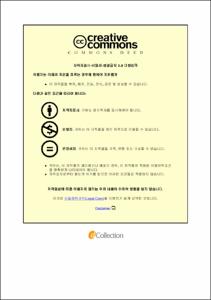Hydroxyproline-containing collagen peptide derived from Alaska pollack skin inhibits HIV-1 infection
- Abstract
- Human Immunodeficiency Virus (HIV) is a lentivirus that causes the acquired immunodeficiency syndrome (AIDS). Anti-HIV therapy involving chemical drugs has improved the life quality of HIV/AIDS patients. However, emergence of HIV drug resistance, side effects and the necessity for long-term anti-HIV treatment are the main reasons for failure of anti-HIV therapy. Therefore, it is essential to develop novel anti-HIV therapeutics from natural resources. We here show that a hydroxyproline-containing marine collagen peptide (APHCP) inhibits HIV-1 infection to human T cells MT4. APHCP has been derived from Alaska pollack skin and previously reported to have potent antioxidant activity. The APHCP exhibited the inhibitory activity on HIV-1IIIB-induced lytic effect (EC50, 0.403 mg/ml, 459μM), syncytia formation, viral p24 antigen production, and reverse transcriptase activity in MT4 cells. The anti-HIV activity was found to be specific against HIV-1 but not against HIV-2. Additionally, substitution of hydroxyproline residues in peptide by prolines resulted in decrease of its anti-HIV activity, suggesting that APHCP exhibits the anti-HIV-1 activity by scavenging intracellular reactive oxygen species generated during HIV-1 infection. These results suggest that marine peptide APHCP might be used as a drug candidate for the development of new generation therapeutic agents.
- Issued Date
- 2015
- Awarded Date
- 2015. 8
- Type
- Dissertation
- Publisher
- 부경대학교 대학원
- Affiliation
- 화학과
- Department
- 대학원 화학과
- Advisor
- 박선주
- Table Of Contents
- 1. Introduction
2. Materials and Methods
2.1. Materials and chemicals
2.2. Cell culture
2.3. Virus
2.4. Cell viability assay
2.5. Inhibition of lytic effect of HIV-1
2.6. p24 antigen assay
2.7. Reverse transcriptase activity assay
2.8. Syncytia formation analysis
2.9. Western blot analysis
3. Results
3.1. Anti-HIV-1 activity of peptides with antioxidant activity
3.2. Non cytotoxicity of APHCP
3.3. Protective effect of APHCP on HIV-1-induced lytic effect
3.4. Effect of APHCP on p24 antigen production
3.5. Effect of APHCP on reverse transcriptase activity
3.6. Effect of APHCP on syncytia formation
3.7. Amino acid substitution of APHCP
3.8. Effect of APHCP on HIV-2RODinfection
4. Discussion
5. References
- Degree
- Master
- Files in This Item:
-
-
Download
 Hydroxyproline-containing collagen peptide derived from Alaska pollack skin inhibits HIV-1 infection.pdf
기타 데이터 / 677.8 kB / Adobe PDF
Hydroxyproline-containing collagen peptide derived from Alaska pollack skin inhibits HIV-1 infection.pdf
기타 데이터 / 677.8 kB / Adobe PDF
-
Items in Repository are protected by copyright, with all rights reserved, unless otherwise indicated.